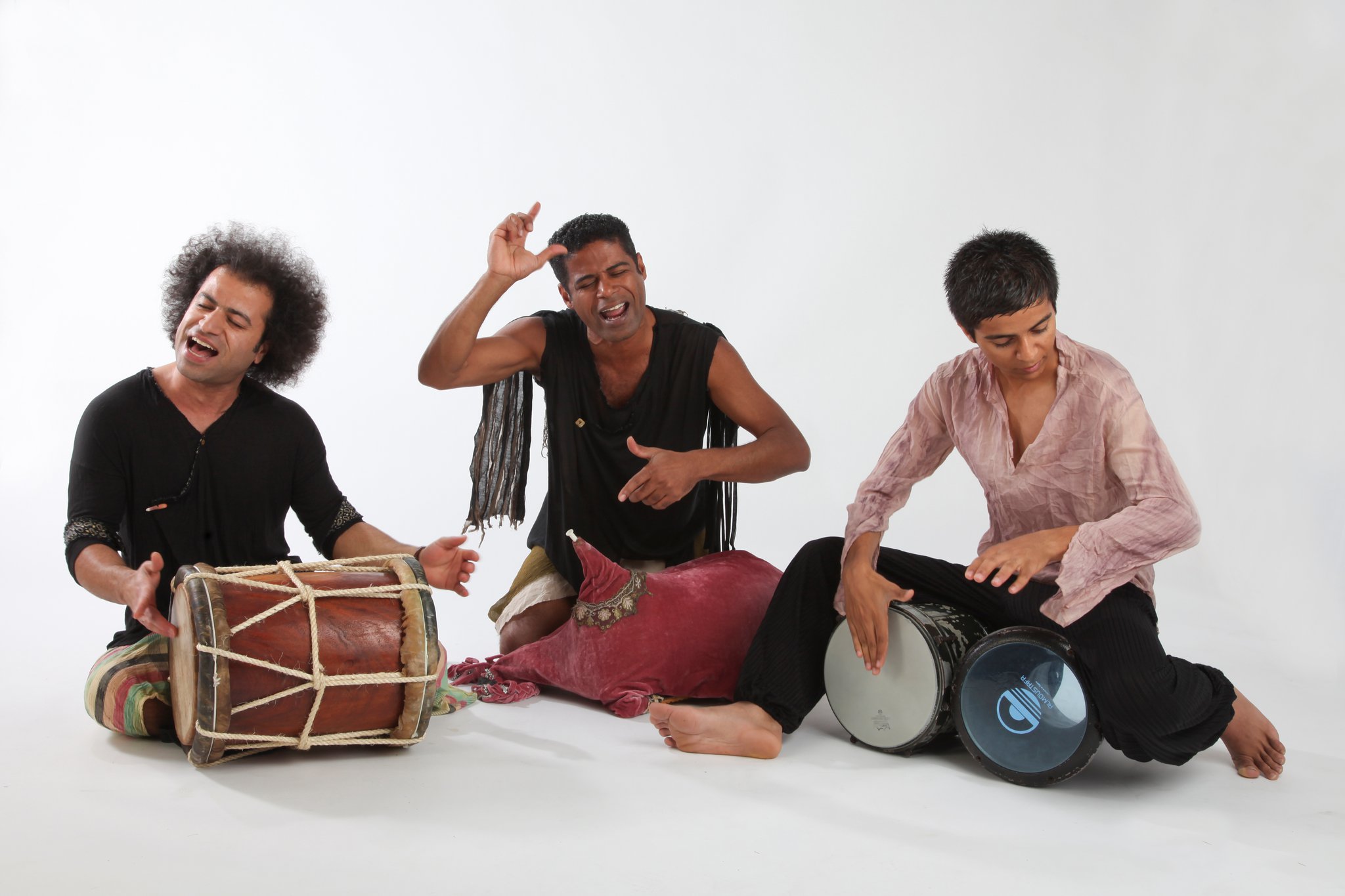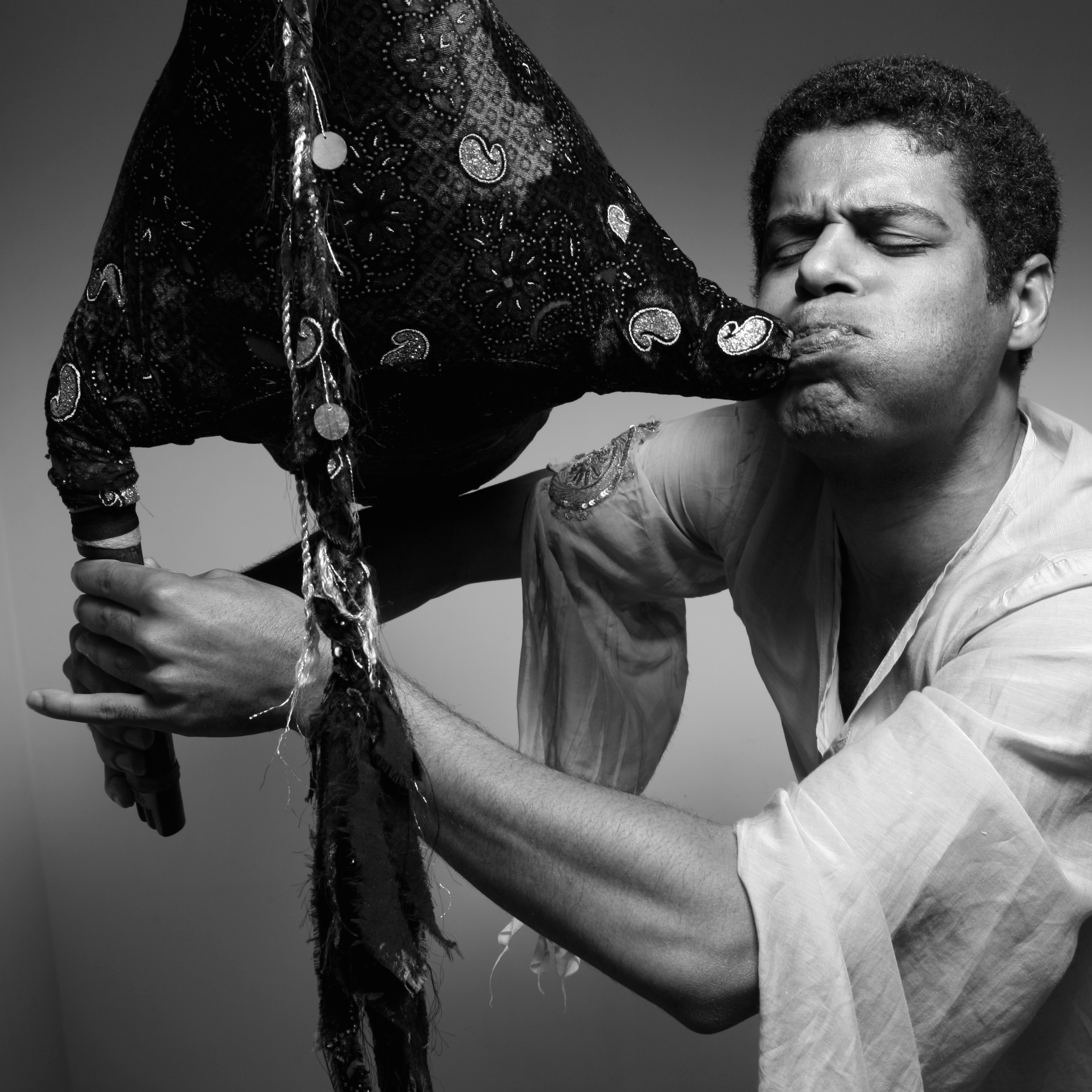The Saeed Shanbehzadeh Ensemble and Trio Donarier live in London
The city of Bushehr – cosily tucked away in the southeast of Iran, overlooking the Persian Gulf – is a world of its own. Known primarily in the West for its nuclear facilities, it’s also home to one of the country’s most diverse and eclectic cultures, a characteristic it greatly owes to its geography, and its historical status as a port city. Serving as a crossroads for traders from around the region – India, Africa, and the Arab world in particular – the indigenous culture of Bushehr inevitably absorbed a multitude of foreign influences, which were able to seamlessly interweave to produce the rich fabric that it boasts today. Indeed, like Iran itself, Bushehr is incredibly diverse and varied on myriad levels, making it somewhat exotic for even Iranians themselves. However, among all the gems the city has to offer, it is perhaps its music that is most outstanding, and which provides a window to the soul of the Bushehri.
Living in Paris, Saeed Shanbehzadeh is Bushehr’s unofficial cultural ambassador, and musician par excellence. A man who considers himself Iranian before anything else (as one Bushehri fan learned the hard way), and who has striven all his life to preserve the cultural legacy of his country, Shanbehzadeh has long been exporting his unique brand of Southern Iranian folk music – and don’t you dare call it Bandari (a semi-derogatory term) - to audiences around the world, particularly in Europe and North America, although it’s only recently that he’s been cementing his place in the world music scene. Playing instruments native to Bushehr and southern Iran such as the ney anban (a bagpipe made from a goat’s bladder) and the ney jofti (lit. ‘double flute’), and accompanied by his son Naghib on the tonbak and Habib Meftah-Bushehri on percussion and vocals, Shanbehzadeh & Co. fantastically give that ever infectious and heady Bushehri groove the royal treatment, which can only be appreciated to the fullest in seeing them live.
I had caught Shanbehzadeh last year, around the same time, at London’s Cadogan Hall, and when I heard he was back in town again, I jumped at the chance to relive those two hours of bliss, as they say in Persian, head first. Although the choice of venue (London’s Camden Centre) was a bit dodgy – as was the ‘service’ provided by the organisers, the opening punk rock act, and the concert-goers themselves – Shanbehzadeh more than compensated for the evening’s shortcomings. Prancing and swaying about frenetically on stage, ney anban in hand (and on head), redefining the word ‘élan’ and putting Jimi Hendrix to shame, Shanbehzadeh and his ensemble – which that evening also included a host of French jazz musicians and a Portuguese singer and dancer – electrified the Camden Centre interminably for over two hours, making the same amount of time we spent queuing up in a cold, disorderly travesty well worth the wait.

The Saeed Shanbehzadeh Ensemble (L-R: Habib Meftah-Boushehri, Saeed Shanbezadeh, & Naghib Shanbehzadeh)
Although at first I was a bit sceptical as to how exactly Shanbehzadeh would manage to marry his unique brand of music with jazz, my trepidation was soon set aside as I witnessed the incredible synergy between every one of the band members, and the seamless integration of the two musical traditions. However, that jazz and Bushehri music should have the ability to be interwoven should not come as a surprise, taking into consideration that the two genres share in African tribal music a common root. As mentioned previously, Bushehr as a port city was exposed to a strong African influence, which, aside from the Zar exorcism ceremonies in Southern Iran and other unique traditions which still persist, has best manifested itself in the region’s music. On the other hand, the African roots of blues and jazz have been well documented by historians and ethnomusicologists.
Prancing and swaying about frenetically on stage, ney anban in hand, redefining the word ‘élan’ and putting Jimi Hendrix to shame, Shanbehzadeh and his ensemble electrified the Camden Centre interminably for over two hours
As deep and weighty as Shanbehzadeh’s music is, however, he is by no means - as often is the case with artists - a stickler. Rather, throughout the set, as was the case at Cadogan Hall last year, Shanbehzadeh cracked jokes, made political statements, and towards the end of the evening, even taught the audience how to ululate, in the grand Middle Eastern tradition. As well, many of the songs were incredibly humorous and light-hearted in their subjects, though Shanbehzadeh’s growling and the booming percussion that caused one to break out in a cold sweat may have suggested otherwise. For instance, in Zengeh-Zengeh – one of the evening’s highlights – Shanbehzadeh made amusing references to Bill Clinton, Silvio Berlusconi, and Yahoo Messenger. As well, in another number, he made brilliantly witty social and political critiques, singing lines such as My son goes barefoot / But Bushehr is atomic, and Oil is the lifeblood of Iran / It all goes towards Syria. Though I could decipher most of his raspy Bushehri – a variant of Persian with foreign loanwords, intrinsic peculiarities, and an accent of its own – there were many Westerners (and even Iranians) who couldn’t, and it would have made for an even more spectacular evening if Shanbehzadeh had explained the stories behind the songs, as he did last year.
For all his ingenuity, ambition, and dedication, though, Saeed Shanbehzadeh is not a particularly wealthy man (in the traditional sense of the word), nor does he enjoy the recognition and attention that many of his contemporaries do. However, money and wealth have never been of particular importance for the patron musician of Bushehr. ‘Our CD’s outside,’ he remarked during the intermission. ‘If you buy it, we’ll love you, although if you don’t … we’ll still love you.’ Never, in all my concert-going years, have I ever come across a musician so talented and ingenious, yet so humble and down-to-earth. Upon receiving a standing ovation (as he so rightfully deserved) at the end of his searing performance, he quieted the audience down to remind them that it was they who should be thanked for supporting him. ‘I’ve encountered so much hardship throughout my life, but just seeing all of you here is enough to make me happy.’
If there’s anything we can learn from this incredible man – aside from appreciating the beauty and passion of Bushehri music – it’s that one should stay the course, and follow through on one’s dreams. I’ll never forget Shanbehzadeh’s closing remarks in a brilliant interview he did some years ago:
To all my friends … to all those in Azerbaijan, Khorasan, Sistan & Baluchestan, Kohgiluyeh & Boyer Ahmad, Bandar Abbas, Abadan … those who play traditional Iranian music … if nobody pays attention to your music, if nobody goes to your concerts, I say, don’t worry. Everyone … with all your energy - keep doing what you’re doing. The world will value what you do. It’s just a question of when, not if. I’m an example!
Hats off to you, Saeed, and the boys from Bushehr - nay - Iran.

